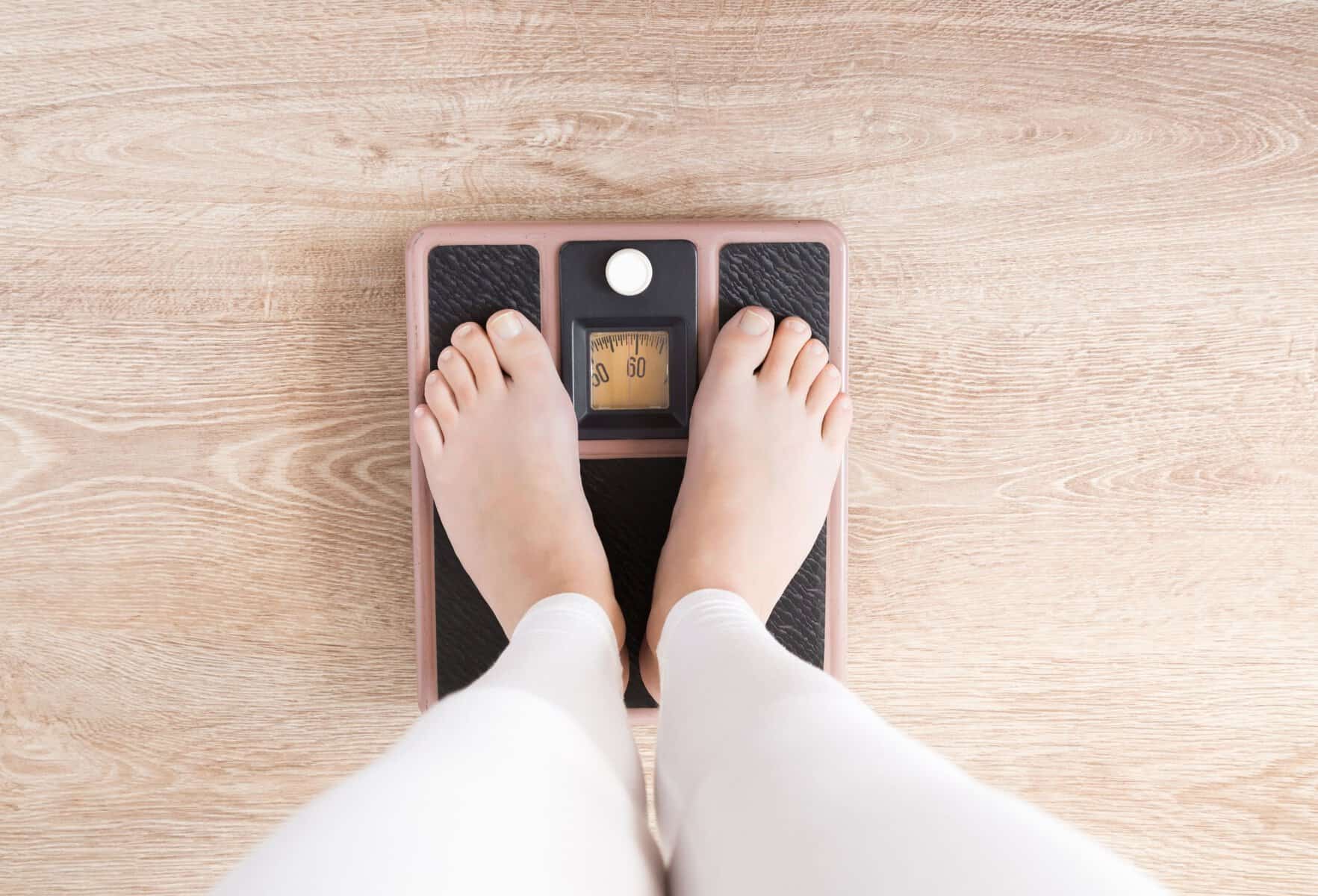
You’ve just woken up. You’ve been to the toilet for a wee (maybe a poo if you’re lucky). You’re in the nudie rudie, in your bathroom. You step on the scales and…. BAM it gives you a number.
You’re not alone in this little ritual. Many people are probably stepping on to the scales at the exact same moment. But have you ever stopped to wonder whether you might be checking in on your weight too often?
The ‘right’ length of time between weight check-ins is dependent on 2 main things:
- What information are you getting from that number
- The impact that number has on your thoughts, feelings, and actions
What does a weight measure tell you?
Technically, your bathroom scales are measuring the mass of your whole body. Within that single number, your scales are, in fact, measuring the weight of your:
- Bones
- Organs (including your brain, liver, spleen… all the things)
- Fluid (including your blood)
- Bowel and stomach contents
- Muscle mass
- Body fat
Read more about the fundamentals of body composition.
While you might technically know this is true, when you last weighed yourself and saw a 200g increase, did you think: ‘Oh wow my blood volume must have gone up a bit since yesterday’ ?
I’m guessing not.
Chances are, you saw the number on the scales and interpreted that information as:
- I ate too much yesterday
- I have gained fat since yesterday
- I have gained muscle since yesterday
Your brain makes these presumptions of what has changed in your body. However, when you stop and think about it, you don’t have any evidence that any of these statements are true. Using your scales alone, you have no way of knowing if that increase of 200g has come from an increase in food in your intestine, a change to your liver stores of glycogen or if you’ve built more red blood cells.
While we can often imply that body fat is increasing if your weight is increasing over time, the bathroom scales don’t tell you that for sure. They imply. But not all increases are caused by fat. As I discussed in ‘How Fast Should Weight Loss Be?’, the rate that your weight changes is driven by a range of different factors, of which body fat is only one.
For this reason, measuring your weight is somewhat useless in gauging changes to your body composition.
Regardless of whether you weight yourself daily, weekly or monthly, you’re not going to get a measure of how much body fat you’re losing or how much muscle your gaining.
How does a weight measure effect you?
Once you’ve seen the number on the scales and implied what it might mean (possibly inaccurately), your brain then takes that information and turns it into changes to your thought patterns, your feelings and your behaviour.
These changes look very different, depending on your expectations, your previous life experiences, and your goals. If you see a 200g increase from yesterday you might notice one of the following patterns in your thoughts, feelings and actions:
- I ate too much yesterday. The food at that party was super delicious, I wanted to try everything. I’m satisfied and I’m glad I enjoyed myself. That’s not how I normally eat so I’ll just go back to my normal pattern today.
- I ate too much yesterday. I didn’t want to overindulge but I couldn’t help myself. I’m so disappointed in myself and frustrated that I might not reach my goal of losing weight. I’m going to be more careful today and have less to eat.
- I ate too much yesterday. I knew that I would. I have no self-control. What’s the point? I may as well write off the rest of the week or give up on this whole process.
As you can see, there’s a huge variation in how someone might use the information the scale has given them. For one, it might mean very little change to their thoughts, feelings, and behaviour, but for another, it might result in very negative self-talk, unpleasant emotions and even self-destructive choices.
If weighing yourself results in:
- a misinterpretation of the information,
- negative thoughts and feelings
- and then negative changes to your food and exercise habits,
the answer to whether you’re weighing yourself too regularly is… YES!!!
The negative impact of that number on the bathroom scales is not worth it!
If you are wanting to see a change in fat or muscle, a Body Composition Analysis, it the best tool. Doing a body composition scan will give you more accurate data of how your body is changing in relation to your diet and exercise patterns. The Healthy Eating Clinic offers this detailed analysis and a clear explanation of the data by our Body Scan Analyst. We recommend 6-8 weeks between scans, which allows time for your habits to translate into genuine change in muscle and/or fat.
If you would like to find out more about Body Composition Scans, you can do so here!



